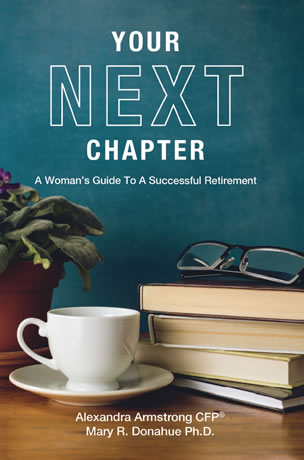Interview with the authors of Your Next Chapter
Q. How is your book different from other books about retirement planning?
Although there are many books written about the financial aspects of retirement, almost none discuss the emotional impact of retirement. In addition, few are written by women for women reflecting their perspective on this major life event. We believe that a book that addressed both the emotional and financial aspects for women approaching retirement was long overdue. We also wanted to share with other women the concept that life after retirement can be rich and fulfilling as is exemplified by our own experiences.
Q. Why is the topic timely now?
Today more so than in the past, there are many women in the workplace facing retirement. Over the years, they’ve accumulated retirement funds which they will need to access to support themselves when they stop working. Statistically, this isn’t always an easy task since statistics indicate women live twenty plus years after they retire. This money will have to last as long as they do. When they leave their jobs, they’re facing many of the same decisions that men have faced historically. Women also may be dealing with a loss of identity, purpose and in particular, a social network.
Q. How does your book help women who previously have not been involved in making significant financial decisions?
Your Next Chapter provides information which will help women to make informed decisions that need to be made at this crucial time in their lives. It demystifies the retirement planning process which can seem overwhelming and is written in a manner that provides essential information in a non intimidating way.
Q. Why are the stories of the four women important?
A standard “how-to” book takes a cookie-cutter approach assuming that everyone has identical problems. We present women in various situations that will be recognizable to the readers. The examples include: a lawyer who is not ready to retire but whose husband has just lost his job and is forced to retire; a divorcee who works for a non- profit and is wondering whether she can afford to retire; a single university professor whose identity revolved around her work; and a non-working wife with family responsibilities who is adjusting to her husband’s retirement needs.
Q. What key advice would you give a woman about to retire?
- Gather the pertinent information at least a year prior to your expected retirement date.
- Attempt to formulate an initial retirement plan.
- Seek professional advice if possible.
- If you have a partner, have an open and honest discussion of how you both foresee your future life together.
- Recognize that retirement is not just a loss of a paycheck; it can mean loss of identity, purpose and social network.
- While the changes in your life are major, in time you can adjust successfully.
.jpeg)
